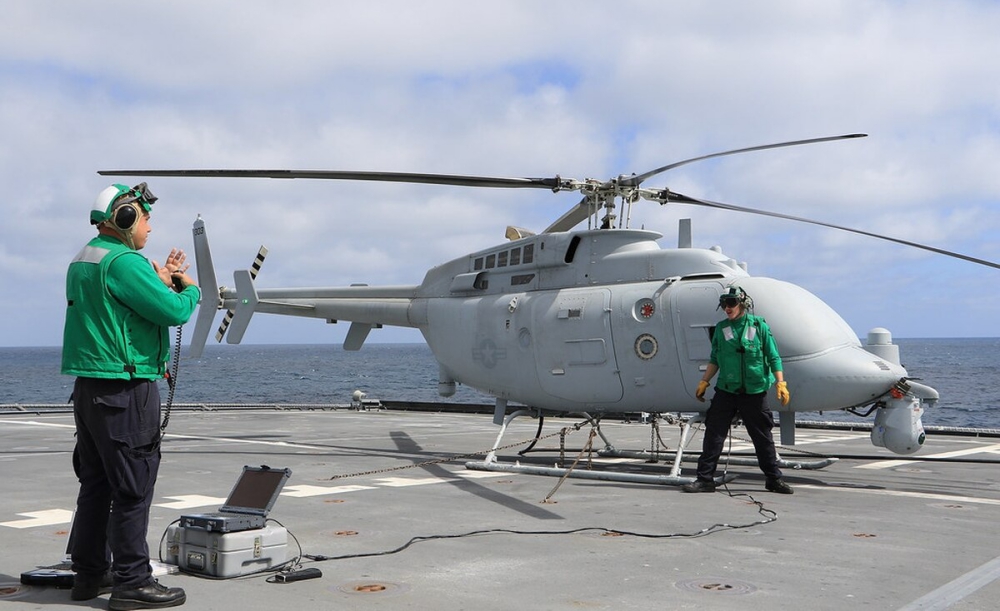The drone was damaged during testing of a lithium ion battery that involved taking the aircraft idling at Maryland’s Webster Field, according to Naval Air Systems Command officials.
At one point, the drone was commanded to shut down via maintenance laptop, and the rotor “tipped to the forward right side of the (Fire Scout) far enough to contact the ground,” according to NAVAIR spokesperson Jamie Cosgrove.
“This appears to have severed the hard wire connection between the (Fire Scout) and the (maintenance laptop),” Cosgrove said. “There were no injuries or damaged infrastructure.”
As the Navy investigates the mishap, it has paused all ground rotor turns for the MQ-8C fleet, Cosgrove said.
“The Navy is committed to putting safety first,” Cosgrove said.
That Class A mishap, a designation for accidents involving at least $2.5 million in damages, follows another Fire Scout incident on Nov. 10 where a Fire Scout operated by Helicopter Sea Combat Squadron 23 crashed alongside a runway at Naval Base Ventura County-Point Mugu, California.
The Fire Scout had reached its recovery perch, a hovering position for such an aircraft as it approaches a landing area, when it crashed for reasons that remain under investigation.
In August, HSC-23 suffered another drone-related Class A mishap when a Bravo variant of the Fire Scout struck a building at the same base.
The Charlie variant is a bigger, faster drone than the Bravo and is currently being introduced to helo squadrons on the East and West coasts.
Like the Bravo, the Navy plans to deploy the Charlie aboard littoral combat ships.
To date, the Navy has completed more than 2,000 flight hours with the Charlie, most of which have involved NAVAIR test squadrons, according to Naval Air Forces officials.
Source: Navy Times

